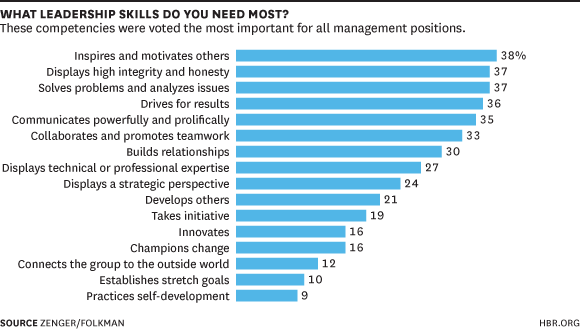Do you have a mentor?
For most of my corporate career, I had at least one, and up to three mentors, at a time.
When I think to the successes I’ve had on the job, I can trace much of it back to the conversations I had with those individuals. I still keep in touch with several of them today, though less frequently, now that I’ve left the corporate workplace for entrepreneurship. That doesn’t mean mentors aren’t needed as an entrepreneur, it just means that I haven’t found them yet!
Finding a good mentor might take some time. It was a few years before I met people who I had strong enough rapport with to make the mentoring relationship last for the long-term.
This post is not about how to find a mentor. Instead, I want to discuss an equally important topic of what to do once you have the mentor relationship started. Too many times I’ve heard from coaching clients (or former co-workers) who either say they have given up on finding a mentor or are stuck in a mentor relationship that isn’t working out.
It’s not enough to find someone to learn from. As the mentee, the onus is on you to drive the relationship, and when it has run its useful course for both parties, end it.
Below I’ll share a few strategies to help your mentorship get off on the right foot, and perhaps even help you get back on track if your mentor meetings aren’t working out.
Contents
1. Pick a few areas of focus
What are the key areas that you want to focus on in your mentor conversations?
If you aren’t sure, this list of leadership skills from Harvard Business Review is a good place to start for inspiration.

Beyond these generic skills, know that every mentor has a different skill set and experience. Think about what they have to offer, and be curious about what you can learn from them. Has your mentor managed large teams? Turned around companies? Created innovative products? Led a company from startup to IPO? Done well on the job while maintaining great work-life balance? Been promoted quickly? Moved across functional disciplines successfully? Changed jobs and companies successfully? Grown a high-performing team?
Take notes on what you would like to learn. Do your homework to know the background of your mentor.
In your first mentor conversation, discuss the types of things you were looking to get out of the conversation. Come prepared with a few topics that you had in mind. Then, ask your mentor what they think would be most relevant to talk about given their background and your current role at your company.
Listen intently. Whatever your mentor says they have to offer you is crucial information!
2. Structure the conversation
With a few general skills and topics in mind, you should be prepared to drive each mentor conversation.
Make it as easy as possible for your mentor! They are offering you their time. You should do all the prep.
A good structure for mentor meetings is to:
1. Check-in on what has transpired since your last meeting.
2. Share any successes you have had in applying what you have learned from your mentor (important!).
3. Introduce a topic or question for the current meeting.
4. Continue the conversation with additional questions you have prepared ahead of time.
Asking great questions is the key to an excellent conversation. You know you are doing it right when you find that your mentor is doing 80% of the talking, and everything is flowing smoothly.
Be curious about the person you are speaking with. What would you really like to learn from them? Even a single compelling question can open the door to a great mentor meeting. In fact, when asked properly, your mentor will come away feeling just as good for having shared something of value, as you will feel for having received the information!
There are an unlimited number of questions that one could ask. Let me offer a few for a hypothetical scenario of a mentee that is looking to find out what it takes to get promoted to the next level in their company. Their mentor is a more senior-leveled professional at a different division in their business.
- What are the keys to getting promoted here, in your opinion?
- Can you think of someone you have worked with who did outstanding work? What did he/she do? What impression did he/she leave?
- What advice would you have for someone like me, who is looking to be successful at the next level at the company?
- What do you know now, that you wish you knew when you first started at the company?
- What skills have been crucial in your current leadership role? Why?
These are just a few examples of questions you could ask. Before meeting with your mentor, spend at least 20 minutes preparing by thinking about the topic you would like to discuss and any specific questions you have.
3. Establish a regular cadence
I used to meet with mentors once every three months for an hour. This cadence worked great. I’ve met with some of my mentors for over a decade, and we never ran out of interesting and useful things to discuss.
We would often go get coffee or preferably meet in their office. I’ve tended to avoid lunch meetings since I find that more meaningful conversation can happen over a drink or meeting in someone’s office. Going to lunch opens up all kinds of distraction, and eating in a public place (particularly in the office cafe) can make it tough to discuss more sensitive topics. That said, I have had a few important conversations over lunch, including one specific meeting when my mentor – out of the blue – recruited me to join his team – leading to a fast promotion.
The key with mentoring is that the mentee must do all the legwork in setting things up. Make it as easy as possible for your mentor. Decide on a cadence, pick the location, schedule and handle all re-rescheduling of meetings promptly.
4. Follow up and follow-through
What do most mentors want in return for their time?
I’d bet that if you asked them, they would say something like, “nothing, I am just happy to help” or something like that.
While your mentor may not want anything in return for their time, I think they would also like to know if what you are learning and applying from the mentoring conversations is having a meaningful impact on your career.
This is the single biggest factor to a successful long-term mentor relationship. Are you applying and achieving results from what you are learning?
Let’s suppose you discuss ways to be a better manager in a mentor meeting. You mentor shares some tactics that she has used to help her team bond more closely and also strategies for having more impactful one-on-one meetings. If you go back to your office and start applying the tactics, and see them working, don’t you think your mentor would like to know that? Absolutely she would!
After each mentor meeting, make it a point to send a thank-you email. Even better, apply something you learned, and follow-up to let your mentor know how it worked for you.
I hope these strategies help you build a healthy relationship with your mentor. If you haven’t found one yet, why not? Perhaps this post has inspired you to do so!








0 Comments